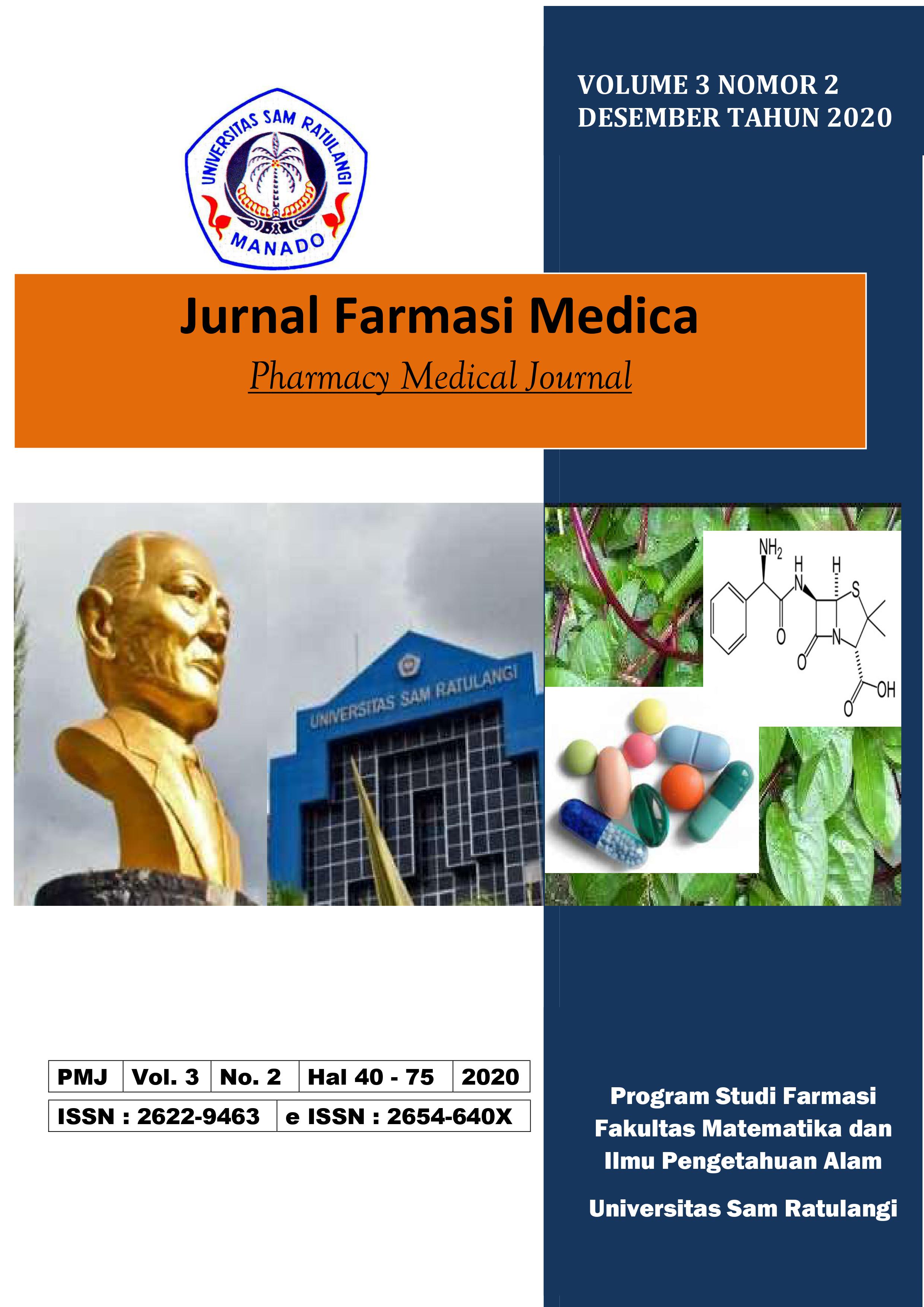TEA BIOACTIVE COMPOUNDS AS INHIBITOR OF MRSA PENICILLIN BINDING PROTEIN 2a (PBP2a): A MOLECULAR DOCKING STUDY
DOI:
https://doi.org/10.35799/pmj.3.2.2020.32878Keywords:
Molecular docking, MRSA, PBP2a, Tea polyphenols.Abstract
ABSTRACT
Â
Methicillin-Resistant Staphylococcus aureus (MRSA) is a hypervirulent multidrug- resistant bacteria. It is spreading around the globe and starting to be a global health problem. It causes bacteremia, infective endocarditis, and bloodstream infection. PBP2a is a protein responsible for MRSA’s resistance to antibiotics, especially beta-lactams. Tea contains bioactive compounds such as polyphenols. It is known to have great antibacterial activities. Therefore, this study aims to find potentials antibacterial compounds from tea polyphenols that can inhibit PBP2a in MRSA with better binding energy than the currently available drugs using the molecular docking approach. We found that theaflavin (-9,7 kcal/mol), as one of the tea polyphenols compound, has a better binding energy with ceftaroline (9,5 kcal/mol) therefore predicted to have better antibacterial activity. (−)- Epigallocatechingallate (-9,1 kcal/mol), (−)-epicatechingallate (-8,8 kcal/mol), myricetin (- 8,7 kcal/mol), quercetin (-8,5 kcal/mol), (−)-epicatechin (-8,3 kcal/mol), (−)- epigallocatechin (-8,3 kcal/mol), kaempferol (-8,3 kcal/mol), procyanidin B2 (-8,1), and theflavindigallate (-7,6 kcal/mol) also have the potential to inhibit MRSA due to its low binding energy.
Â
Key words : Molecular docking, MRSA, PBP2a, Tea polyphenols.



